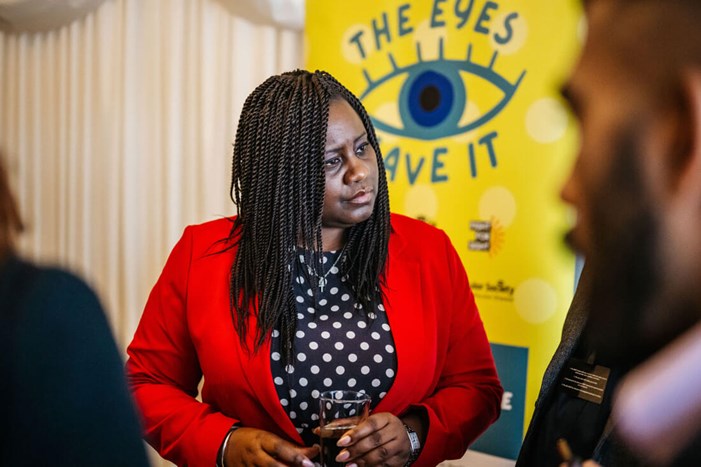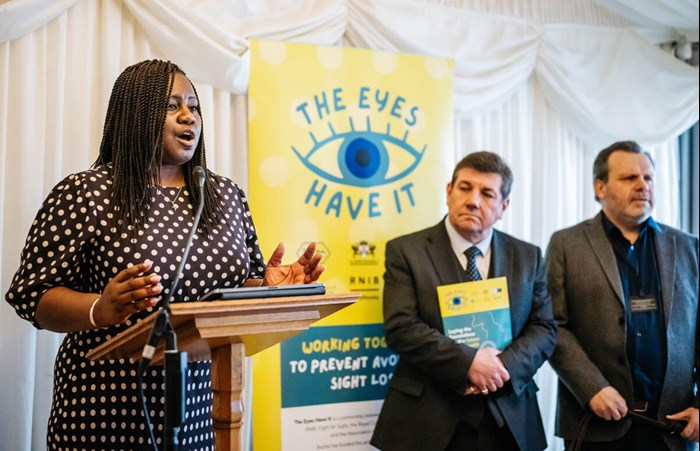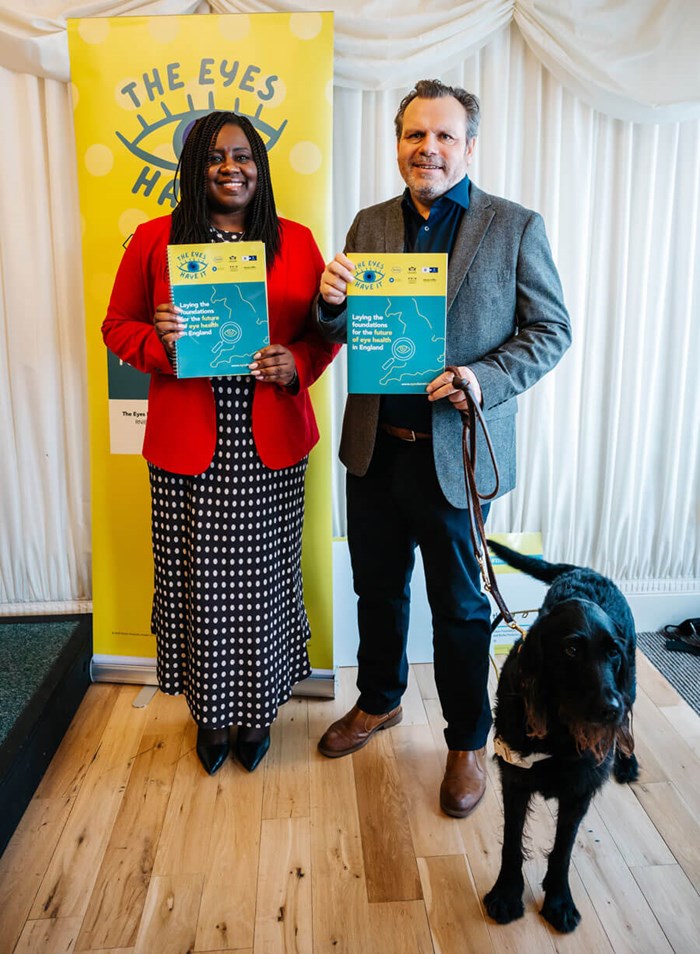Westminster Eye Health Day (WEHD) is the flagship parliamentary event of The Eyes have It (TEHI), a partnership of Roche, Macular Society, Fight for Sight, The Royal College of Ophthalmologists, Association of Optometrists and RNIB and has returned for its third year, sponsored by Marsha de Cordova, MP for Battersea. The aim of the partnership and the event for the past three years has been to raise awareness of the importance of improving eyecare services for the estimated 2.2 million people living with a condition that causes sight loss, and to therefore raise eye health higher on the political agenda.
This year, the WEHD event launched a new report which sets out key recommendations developed by the partnership to address the surging patient demand for eye health services and to prevent life changing sight loss some of the NHS' paramount challenges today. It is hoped these recommendations can form the basis of a national plan for eyecare in England that will support local decision-makers with national accountability that can contribute to providing good quality eyecare in England.
At the event, attendees were able to explore the policy changes required to deliver sustainable improvements in eyecare, learn more about eyecare and sight loss in their area or constituency, experience how someone with age-related macular degeneration may see the world through Roche’s virtual reality sight loss tool; and parliamentarians had the opportunity to meet clinicians and leaders from across the sector.
Following WEHD, Eye News were able to briefly speak with Marsha de Cordova about her work with TEHI, WEHD and the achievements and challenges for both...
As an introduction, please introduce yourself briefly and tell the readers how you came to be in this collaborative position with TEHI.
My name is Marsha de Cordova, MP for Battersea since 2017, and Chair of the APPG on Eye Health and Visual Impairment. Since I was elected, it has been my mission to improve eye health care and support for people living with sight loss, not least due to my own lived experience of being born with Nystagmus, which is an involuntary movement of the eye.
The formation of The Eyes Have It partnership has come at a crucial time given the current state of eye health, and I am proud to support their initiative. The Partnership is undertaking excellent work to tackle eye health issues and influencing policy, Parliamentarians and government to take action on addressing some of the challenges.

What is the key significance of Westminster Eye Health Day (WEHD) and what does it hope to highlight annually?
To raise awareness of the importance of improving eye care services and call for vital changes to ensure no one loses their sight unnecessarily.
We are in an eye health emergency and Westminster Eye health Day is important in highlighting the crisis in eye health;
- There are currently 2 million people living with sight loss and By 2050, 4 million people in the UK are expected to be living with sight loss.
- In England, ophthalmology is the busiest outpatient specialty in the NHS, with over 8 million hospital attendances last year.
- There are over 600,000 people waiting to start specialist eye treatment in England as of July 2023, including 20,000 people who have been waiting a year or more.
- The cost of sight loss to the UK economy is £36 billion.
This is why we need the government to take urgent action.
Your collaboration with The Eyes Have It and the benefits it brings go without saying – what would you say are the key achievements from this collaboration to date?
This year is the third annual Westminster Eye Health Day which has been a huge success including raising awareness through ensuring Ministers engagement on the issue and making sure our calls to action are heard.
This year, the event will launch a new foundation report which sets out key recommendations developed by the Partnership to address the surging patient demand for eye health services and to prevent life changing sight loss.
The recommendations support my Bill for a national eye health strategy that will ensure local decision-making with national accountability in order to deliver good quality eyecare in England.
The Partnership has also played a significant role in bringing the sector together, so that we are all united in the change we what we want to see, from industry to voluntary organisations.

Thinking along those same lines, what do you foresee as potential challenges ahead?
There are many challenges, but one of the main issues is ensuring there is an adequate workforce that can meet future demand. Currently over 75% of units do not have enough ophthalmologists to meet current patient demand, and we still have hundreds of thousands of people on waiting lists.
We also need to see advancements in the NHS’s approach to new treatments and the introduction of AI, which we know is rapidly advancing and is going to be transformative in the eye health space.
Finally, we need to see more investment across all areas, from research to NHS eye unit equipment.
If you could only choose two things from the WEHD programme this year to promote, what would they be?
The recommendations of the report and the call for eye screening for everyone, every two years.
Ophthalmology is a field of medicine that is expanding and evolving every day – as Chair of the Eye Health and Vision Impairment All Party Parliamentary Group (APPG), what developments are you most excited about within ophthalmology?
The advances in diagnostics and treatments are very promising and exciting. Being able to detect conditions earlier, and faster is going to crucially save sight, and the work being done in this area to improve referrals from primary to secondary care is hugely important.
They will offer opportunities to get people on the right care and treatment plans as early as possible.

Following the above, as Chair of the Eye Health and Vision Impairment APPG, what would you wish to see change in the eye care space in the next 5 years?
Over the next five years, I would like to see the areas of my Bill be shaped into solid policy commitments and implemented – and to already see a shift in how eye care is delivered and improving patient outcomes.
You’ve been very active in campaigning for a national plan for eye care. What are your plans as we go into an election year?
I am determined to continue to advocate for holistic change to eye health care. We desperately need a national plan for eye care in England – it would transform patient outcomes and I hope elements of the Strategy will be picked up and included in the manifestos of political parties ahead of the General Election.
Is there a message you would like to call on for the national plan for eye care?
My message is simple: everyone should have access to high quality eye health care where and when they need it.
To close, what have been your ophthalmic highlights of this year so far?
I have three highlights:
- Firstly, obtaining cross-sector support for my Bill. The research and evidence that has been provided in support of the five areas of the Strategy has been fantastic.
- Secondly the work of the APPG – we have looked at some really important areas such as access to psychological support, tackling the workforce issues and removing barriers in employment for blind and partially sighted people.
- Thirdly, The Eyes Have it Partnership and the work they have done to produce the report on the foundations of a national eye health strategy.
For more information on the report, click here.
And for more information on TEHI, visit: https://eyeshaveit.co.uk/



